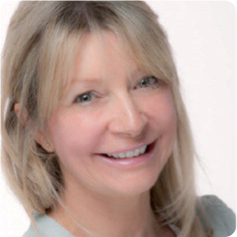References
Remote prescribing and becoming a key opinion leader

Abstract
Sharon Bennett details her recent meeting with the Nursing and Midwifery Council and discusses the work that goes into being a key opinion leader

 Key opinion leaders push boundaries, make appearances in journals, speak at conferences and develop new theories, techniques or research
Key opinion leaders push boundaries, make appearances in journals, speak at conferences and develop new theories, techniques or research
This time last year, the UK was going into another lockdown, so it is with huge joy that we have our clinics open and can work normally.
This month, it seems appropriate to discuss the hot topic of remote prescribing and standards of practice in medical aesthetics. We are challenged by the activities of some Nursing and Midwifery Council (NMC) nurse prescribers in the aesthetics arena, and also the reports of nurses providing services that fall well below the benchmark of safe practice. As chair of the British Association of Cosmetic Nurses (BACN), I recently met with NMC chief executive Andrea Sutcliffe, Geraldine Walters (executive director of professional practice) and Alice Hilken (general counsel). I was given the opportunity to share concerns with the NMC and discuss how we could work together to tackle these issues of public protection. The meeting allowed for a frank and open discussion in regard to remote prescribing and the complexities of this issue. The differences in terms of approaches from different regulators arose, and, in particular, the NMC was not being clear enough where remote prescribing and cosmetic practice were concerned. The NMC noted our request to reconsider its position in order to align with the other medical regulators. Additionally, I touched on the issue of nurses training non-healthcare practitioners in cosmetic injectables, stating that the BACN code of professional conduct does not permit this practice from its member nurses. We discussed aligning our two codes of practice and the importance of linking an agreement about standards to the revalidation and fitness to practice processes for nurses practising in aesthetics.
Register now to continue reading
Thank you for visiting Journal of Aesthetic Nurses and reading some of our peer-reviewed resources for aesthetic nurses. To read more, please register today. You’ll enjoy the following great benefits:
What's included
-
Limited access to clinical or professional articles
-
New content and clinical newsletter updates each month


